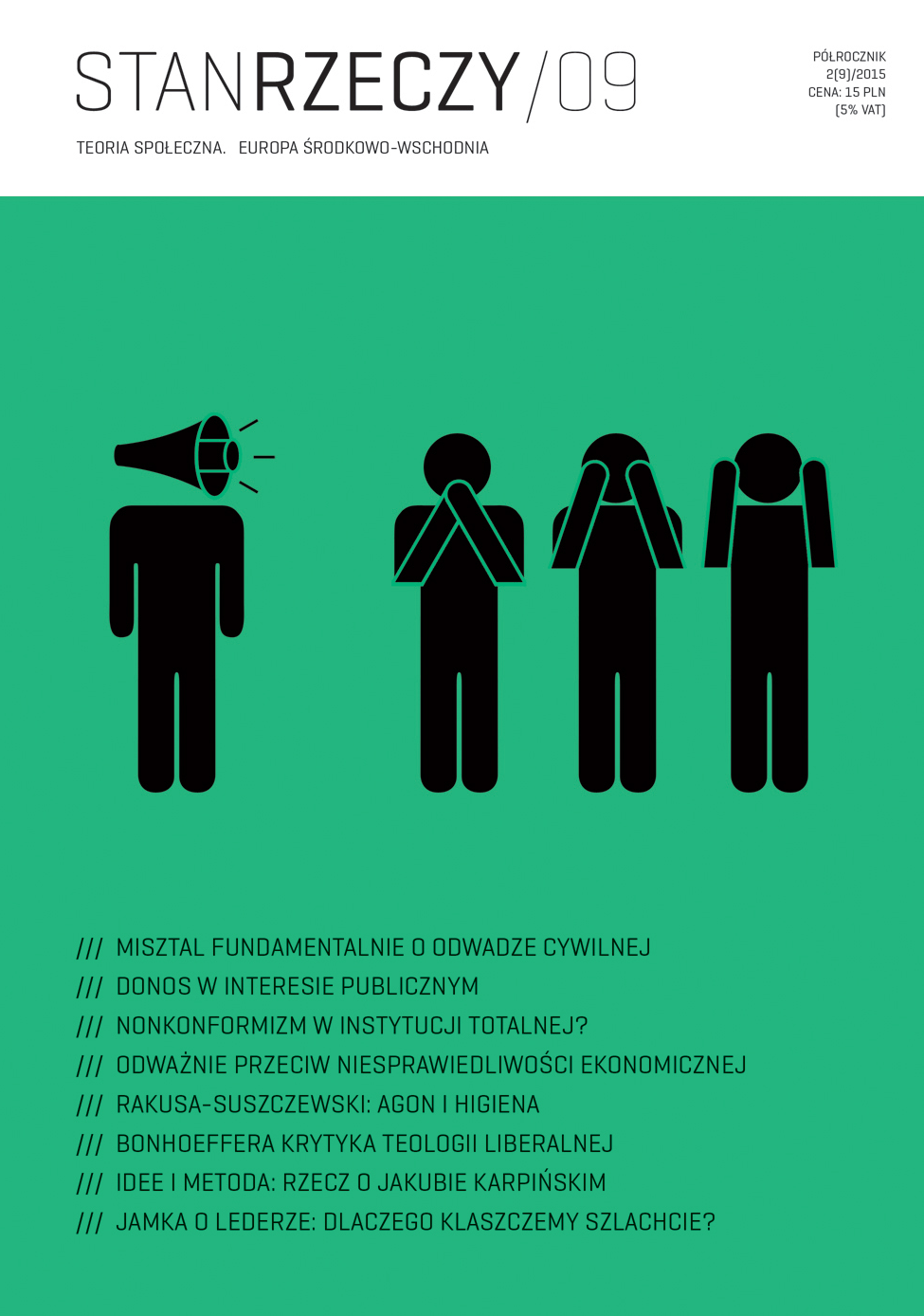Bohater, donosiciel, kozioł ofiarny. Rozważania o sygnalistach i społecznej roli whistleblowingu
Hero, whistle-blower, scapegoat – reflections on the social role of whistleblowing
Author(s): Aleksandra KobylińskaSubject(s): Social Sciences, Civil Society, Sociology
Published by: Wydział Socjologii Uniwersytetu Warszawskiego
Keywords: whistleblowing;whistleblower;non-conformity;positive deviance
Summary/Abstract: Whistleblowing – ujawnianie przez pracownika nieprawidłowości, do jakich dochodzi w organizacji – jest jednym z ważnych mechanizmów eliminowania patologii z instytucji publicznych i przedsiębiorstw. Artykuł podejmuje próbę odpowiedzi na pytania, czym jest whistleblowing oraz jakie jest jego społeczne znaczenie. W tekście zasygnalizowane zostały kluczowe problemy związane z ujawnianiem nieprawidłowości oraz ze społecznymi reakcjami na działalność sygnalistów. Punktem odniesienia są Mertonowskie rozważania na temat nonkonformizmu oraz koncepcja pozytywnej dewiacji społecznej. Tekst odwołuje się do przykładów doświadczeń polskich sygnalistów z ostatnich lat. Whistleblowing, which is the disclosure by an employee of irregularities occurring in their organization , plays a vital role in combatting wrongdoings in public institutions and business. The article discusses the key questions relating to whistleblowing and its social significance. It indicates the crucial problems connected with the disclosure of irregularities and social reactions to whistleblowing. The article refers to R.K. Merton’s concept of non-conformity and to the positive social deviance theory. The issues discussed areillustrated by recent Polish examples of whistleblowing.
Journal: Stan Rzeczy
- Issue Year: 2015
- Issue No: 9
- Page Range: 127-140
- Page Count: 14
- Language: Polish

